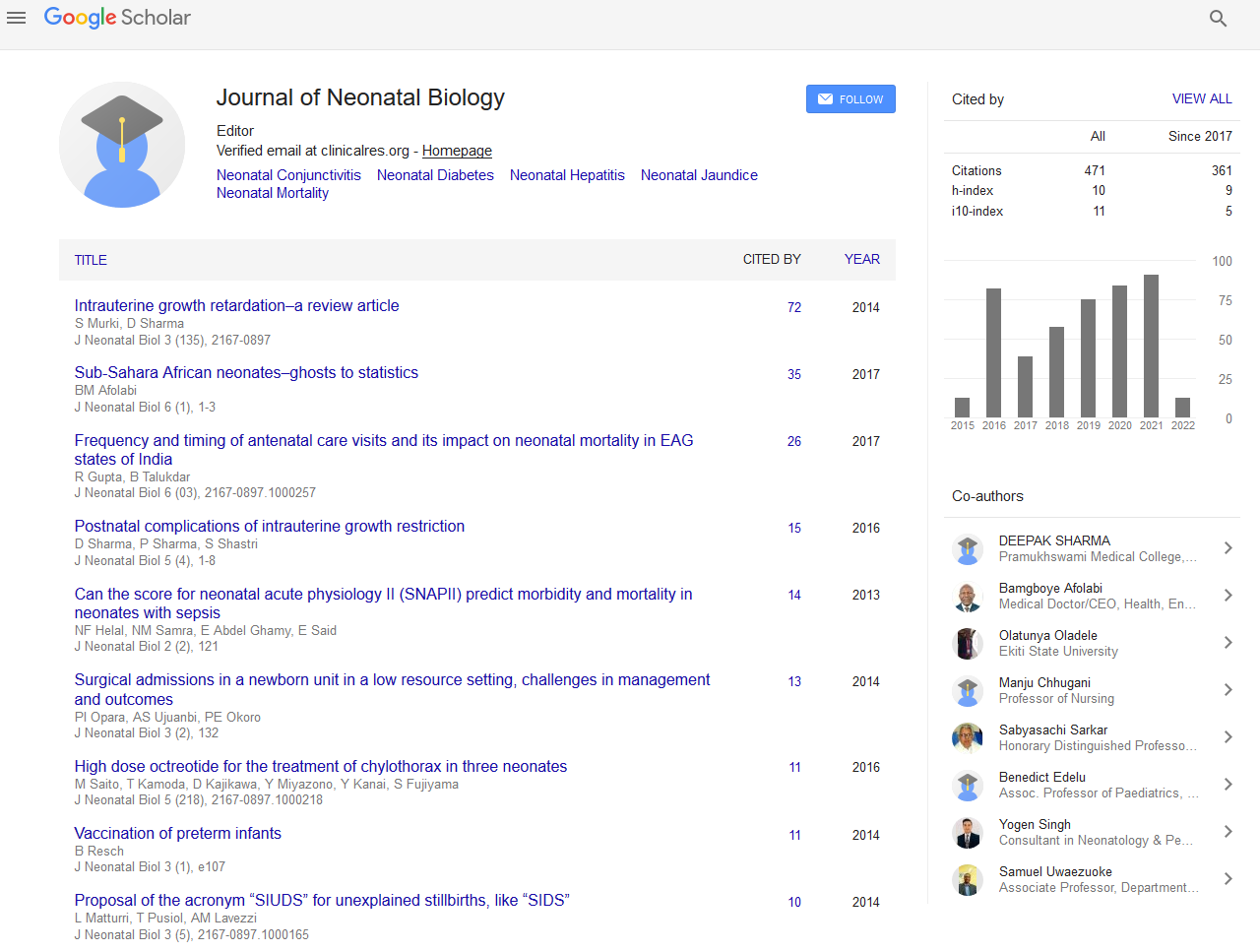PMC/PubMed Indexed Articles
Indexed In
- Genamics JournalSeek
- RefSeek
- Hamdard University
- EBSCO A-Z
- OCLC- WorldCat
- Publons
- Geneva Foundation for Medical Education and Research
- Euro Pub
- Google Scholar
Useful Links
Share This Page
Journal Flyer

Open Access Journals
- Agri and Aquaculture
- Biochemistry
- Bioinformatics & Systems Biology
- Business & Management
- Chemistry
- Clinical Sciences
- Engineering
- Food & Nutrition
- General Science
- Genetics & Molecular Biology
- Immunology & Microbiology
- Medical Sciences
- Neuroscience & Psychology
- Nursing & Health Care
- Pharmaceutical Sciences
Colistin use in critically ill neonates: A case-control study
20th International Conference on Neonatology and Perinatology
December 04-06, 2017 | Madrid, Spain
Mehmet Sah Ipek
Memorial Dicle Hospital, Turkey
Scientific Tracks Abstracts: J Neonatal Biol
Abstract:
Background: Even though a few recent studies have shown the efficacy and safety of IV colistin in children and neonates, there is still a vague due to the concomitant use of other drugs in addition to colistin and coexisting clinical conditions. The aim of this study was to assess the safety and efficacy of colistin therapy for multi-drug resistant gram-negative bacteria nosocomial infections in neonates, considering the effects of concomitant medications and the coexistence of clinical conditions. Methods: This case�??control study included newborn infants with proven or suspected nosocomial infections between January 2012 and October 2015, at two centers in Diyarbakir, Turkey. The clinical and laboratory characteristics and outcomes of patients who received colistin therapy were reviewed and compared to patients who were treated with antimicrobial agents other than colistin during the same period. Results: Forty-seven cases who received intravenous colistin (colistin group) and 59 control patients (control group) were included. There were no significant differences between the groups regarding outcomes and nephrotoxicity, including acute renal failure. Colistin therapy was associated with significantly reduced serum magnesium (1.38 ± 0.39 mg/dl vs. 1.96 ± 0.39 mg/dl, p < 0.001) and hypokalemia (46.8% vs. 25.4%, p = 0.026). The patients who received colistin also had longer hospital stays [43 (32�??70) days vs. 39 (28�??55) days, p = 0.047], a higher rate of previous carbapenem exposure (40.4% vs. 11.9%, p = 0.001), and a higher age at the onset of infection (13 (10�??21) days vs. 11 (9�??15) days, p = 0.03). Conclusions: This study showed that colistin was both effective and safe for treating neonatal infections caused by multidrugresistant gram-negative bacteria. However, intravenous colistin use was significantly associated with hypomagnesemia and hypokalemia.
Biography :
Mehmet Sah ipek, born in 1978, specialized in Neonatal Medicine. He graduated from Hacettepe University Medical School, Ankara, Turkey. He received his specialization at Dr. Sami Ulus Maternity and Children Training and Research Hospital, Ankara, Turkey. Currently, he is working as a medical doctor at Memorial Dicle Hospital, Diyarbakir, Turkey. He is a member of Turkish Neonatology Society and Turkish Medical Association. He is author or co-author of more than 25 peer-reviewed published and accepted articles in international refereed journals. He has authored two book’s chapters.


